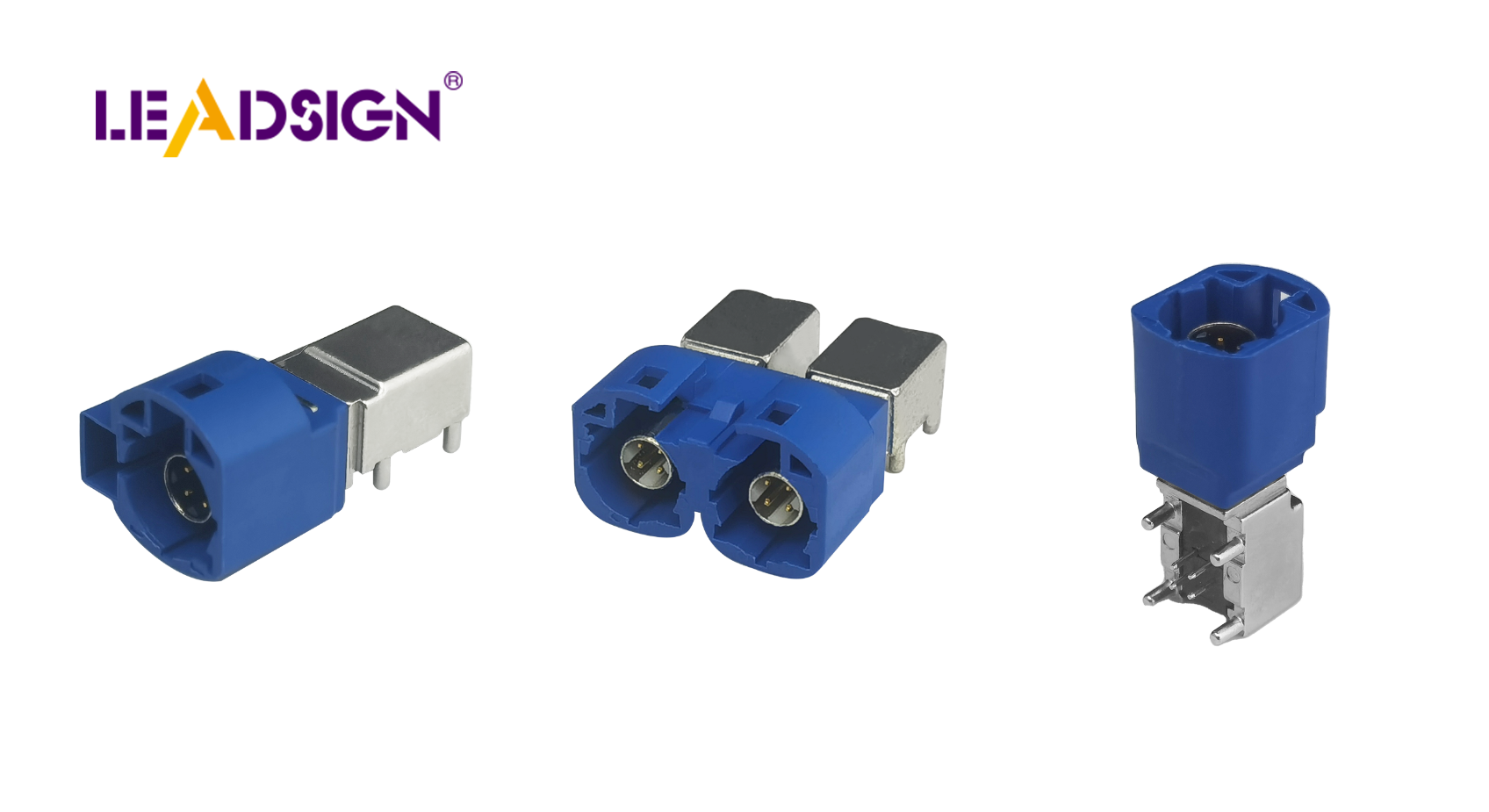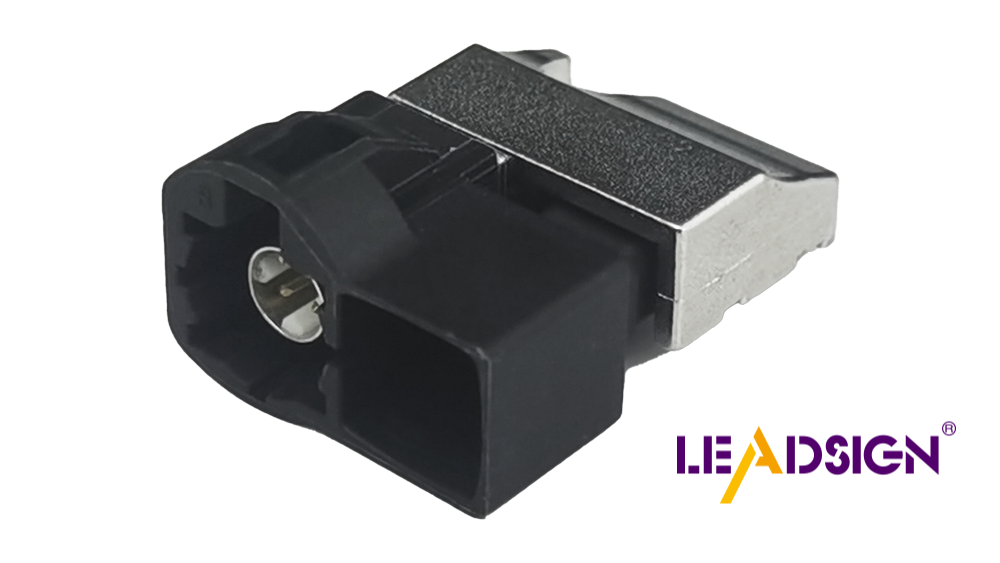What Are the Essential Vehicle Connectors for Your Car?

Vehicle connectors are important for how well your car works. They help power and signals move smoothly between car parts. The right connectors stop electrical fires and keep safety features functioning properly. Connectors, like pigtail ones, link electrical components so brakes operate correctly. Different vehicle connectors can fail more or less often, depending on heat and power levels. Choosing the right connectors ensures your car remains safe and runs efficiently.
Key Takeaways
Understanding vehicle connectors is crucial for your car's safety and performance, as they facilitate the movement of power, signals, and fluids between parts.
Familiarize yourself with the main types of connectors: electrical, mechanical, and fluid, each serving a specific role in your vehicle's operation.
Choose high-quality connectors that can withstand tough conditions, as they will last longer and require less maintenance, ultimately saving you time and money.
Consider your car's specific needs and the environments in which you drive when selecting connectors to ensure they perform optimally.
Balance cost and quality when purchasing connectors; investing in reliable options can prevent frequent replacements and enhance your car's reliability.
Regularly check and maintain your connectors to prevent issues and ensure your vehicle operates smoothly and safely.
Types of Essential Vehicle Connectors

Knowing about different vehicle connectors helps keep your car safe and working well. These connectors let power and signals move easily between car parts. Let's look at the important connectors you should know.
Automotive Electrical Connectors
These connectors are key in car wiring. They make sure circuits connect well, stopping problems and helping the car work best. Here are some main types:
Battery Connectors
Battery connectors are very important for your car's power. They link the battery to the car's electric system, giving power to start the engine and run other systems. Battery terminals need to be tight to stop power loss and help energy move well.
Sensor Connectors
Sensor connectors join sensors to the car's control units. They make sure sensor data, like engine heat or speed, is sent right. Good sensor connectors are needed for the car to work and stay safe.
Mechanical Connectors
Mechanical connectors keep car parts stable and supported. They make sure parts stay in place, even when the car shakes or moves.
Hose Clamps
Hose clamps hold hoses tight, stopping leaks and making sure fluids move right in the car. They are important for keeping fluid systems, like cooling and fuel, working well.
Fasteners
Fasteners keep car parts together. They include bolts, screws, and nuts, which are important for keeping car parts strong. Rightly placed fasteners stop parts from coming loose or falling off.
Fluid Connectors
Fluid connectors help liquids, like fuel and brake fluid, move well in the car. They are important for fluid systems to work right.
Fuel Line Connectors
Fuel line connectors join the fuel tank to the engine, letting fuel flow well. These connectors need to be strong and not rust to stop leaks and help fuel move right.
Brake Line Connectors
Brake line connectors are key for the car's brakes. They link brake lines to calipers, making sure brake fluid gets to brakes well. Good brake line connectors are needed for brakes to work and be safe.
By knowing these important vehicle connectors, you can keep your car safe and running well. Each connector type has a special job in keeping your car reliable and working right.
Features and Benefits of Vehicle Connectors
Knowing about vehicle connectors helps your car work better. They let power and signals move easily between parts, making your car run well.
Durability and Material Quality
Durability is important for vehicle connectors. Good materials help them last in tough conditions like heat and shaking. This stops them from breaking. For example, pigtail connectors are strong and connect electrical parts well. Picking strong connectors means they last long and need less fixing.
Ease of Installation and Maintenance
Easy installation and maintenance are big benefits. Simple connectors save you time. They have clear labels and easy locks. This makes checking and fixing them quick. Choosing easy connectors helps your car work better.
Compatibility with Vehicle Systems
Connectors must fit your car's systems to work right. They need to match your car's parts to stop problems. Car connectors come in different shapes and sizes to fit well. Picking the right connectors keeps your car's systems working smoothly.
How Connectors Affect Car Performance and Safety
Knowing how connectors help your car is important. They let power, signals, and fluids move well, keeping your car working and safe.
Improving Electrical System
Connectors are key for your car's electric parts. They link things like the battery and sensors. This stops electric problems and helps lights and other systems work better. For electric cars, connectors like CCS Type 1 and 2 change how fast they charge. Picking the right one helps your car work well and avoids electric troubles.
Keeping Parts Stable
Mechanical connectors, like hose clamps and fasteners, hold car parts tight. They stop parts from moving when the car shakes. This keeps your car running smoothly. Good connectors stop parts from getting loose or leaking, which keeps your car reliable.
Keeping Fluids Moving
Fluid connectors help liquids like fuel and brake fluid move in your car. They stop leaks and make sure fluids go where needed. Strong fluid connectors keep your car's systems working well. For example, fuel line connectors must be strong to stop leaks and help fuel reach the engine.
By knowing how these connectors help your car, you can choose the best ones. This keeps your car safe and working well.
Picking the Best Connectors for Your Car
Choosing the right connectors keeps your car safe and working well. Think about a few things to pick the best ones.
Checking What Your Car Needs
First, find out what your car needs. Every car has different parts and systems. Figure out which connectors are important for your car's electric, mechanical, and fluid parts. For example, if your car has fancy electronics, you might need strong connectors. These connectors handle lots of power and data well. Knowing your car's needs helps you pick connectors that work best.
Thinking About Where You Drive
Next, think about where you drive. Weather and roads can change how connectors work. If you drive in wet or dusty places, get connectors that seal well. These stop water and dirt from causing harm. For cars used in tough jobs, pick connectors that handle heat and shaking. By thinking about where you drive, you make sure your connectors last long.
Balancing Cost and Quality
Finally, think about cost and quality. Good connectors might cost more, but they last longer. They need less fixing and keep your car running well. In tough jobs, good connectors stop frequent changes and problems. Compare the cost with the benefits to decide. Picking quality means your connectors work well in different places.
By checking your car's needs, thinking about where you drive, and balancing cost and quality, you can pick the best connectors. This careful choice keeps your car safe and working right.
Understanding vehicle connectors is key for your car's performance and safety. These connectors help power, signals, and fluids move well between parts. When picking connectors, think about your car's needs, where you drive, and the cost versus quality. Choosing good connectors from trusted brands makes your car more reliable and less likely to fail. By choosing wisely, you can keep your car running smoothly and safely.
FAQ
What are vehicle connectors?
Vehicle connectors join different car parts. They let power, signals, and fluids move easily. These connectors help your car work well and stay safe.
Why are vehicle connectors important?
Vehicle connectors are key for your car's safety and performance. They stop electrical fires and make sure safety features work. They help your car run smoothly by connecting parts well.
How do I choose the right connectors for my car?
To pick the right connectors, think about your car's needs. Look at your car's systems, where you drive, and balance cost with quality. This helps you choose connectors that make your car reliable.
What types of vehicle connectors should I know about?
You should know three main types: electrical, mechanical, and fluid connectors. Each type helps your car's systems work right.
How do connectors affect my car's performance?
Connectors help your car by moving power, keeping parts stable, and letting fluids flow. Good connectors keep your car running well and stop problems.
Can I install vehicle connectors myself?
Yes, you can install some connectors yourself. Find ones that are easy to put in and take care of. They often have clear labels and simple locks, making them easy to use.
What materials are best for vehicle connectors?
Strong materials like good plastics and metals are best. They handle tough conditions like heat and shaking, so they last longer and need less fixing.
How do environmental factors affect connectors?
Things like water, dust, and heat can affect connectors. Pick connectors that seal well if you drive in wet or dusty places. This stops damage and helps them last longer.
Are there specific connectors for electric vehicles?
Yes, electric cars use special connectors like CCS Type 1 and 2. These affect how fast they charge. Picking the right one helps your electric car work best.
Where can I buy reliable vehicle connectors?
You can buy good connectors from trusted car parts stores or online. Look for brands known for quality to get connectors that fit your car's needs.
See Also
Why Fakra Automotive Connectors Matter in Today's Cars
Significance of Fakra Connectors for Honda Automobiles
Understanding HSD Connectors Within Automotive Applications
Fakra Connectors: Essential Components in Automotive Technology

